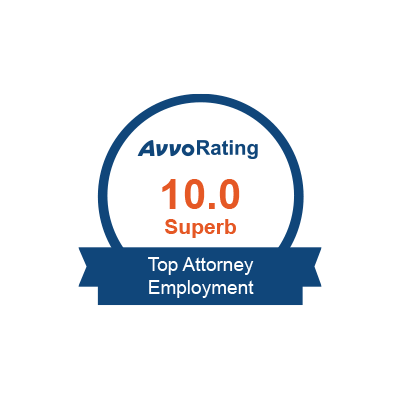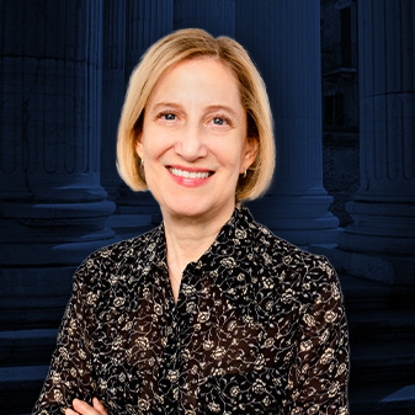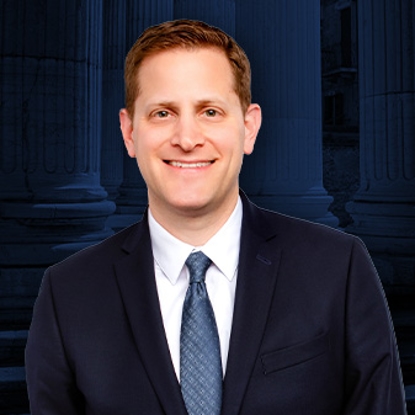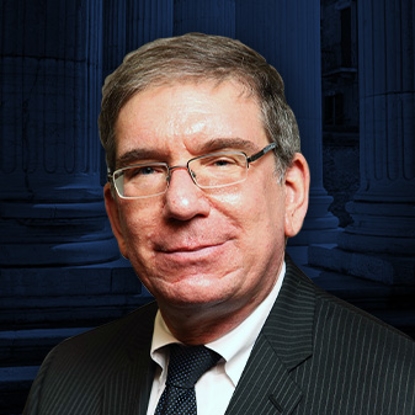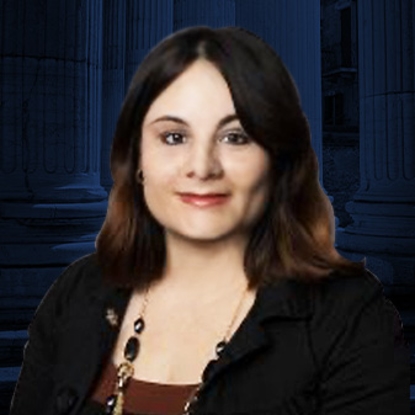
Frequently asked Questions
Q: I believe I was fired unfairly. What options do I have?
A: In New York, there is a big difference between an unfair termination and an unlawful termination. In other words, it might be unfair that your employer fired you, but that does not necessarily mean that it was unlawful or that you have a case of discrimination. This is because employment in New York is presumed to be "at-will," which means that your employer can terminate you at any time, for any reason or for no reason at all. Just by way of example, your employer can decide to fire you, even if you are a superstar, have done nothing wrong and do not receive any warnings of poor performance. In New York, there are essentially 2 exceptions to the general "at will rule." The first exception would be that your employer cannot fire if doing so would violate an employment contract that you have with your employer. The second exception would be that if firing you would constitute unlawful employment discrimination.
Q: What is unlawful discrimination in New York?
A: New York State and Federal Law makes it illegal for an employer to fire you or refuse to hire you because of your race, color, national origin, religion, gender, pregnancy, age (if over 40) or disability. The New York City Human Right Rights Law also covers sexual orientation. An employer also cannot fire you for asking for a reasonable accommodation, for complaining about unlawful discrimination, or for participating in an employment discrimination investigation.

Q: I made a complaint to Human Resources that I felt I was being discriminated against by my supervisor and now I have been demoted. Is there anything I can do?
A: Yes, if you have complained of discrimination and your employer has taken any negative adverse action against you as a result, you may be the target of retaliation and the human rights law protects you from being retaliated against.
Q: What is "wrongful termination?"
A: "Wrongful termination" is actually an extremely misleading term, as an employee who has a bad or unfair boss is not protected under the law. When "wrongful termination" is actionable it is because the employee has been discriminated because of his or her race, color, age (over 40), national origin, gender, disability (perceived or actual), pregnancy, sexual orientation and religion.
Q: How old is too old according to the laws that prohibit age discrimination in employment?
A: Anyone 40 or over is protected by the human rights laws.
Q: What laws protect gay people from discrimination?
A: In New York, the New York City Human Rights law prohibits discrimination based on an individual’s sexual orientation. If a gay person is discriminated against in the City of New York, he or she would be protected under that law.
Q: My boss does not allow me to express my religious beliefs. Is this illegal discrimination?
A: It is possible. In New York discrimination and harassment on the basis of religion are prohibited by federal, state and local law.
Q: How does anyone prove employment discrimination?
A: Few employers admit that they discriminate against applicants or employees. Experience shows, however, that employers still leave plenty of fingerprints. This includes: direct ("smoking gun") evidence, such as: actual admissions of bias (written or verbal) such as "women don't belong around heavy construction equipment" or "we want the workplace to become young and hip" or indirect evidence, such as: statistics (an all white, male executive team or a higher than expected proportion of older workers laid off), other cases of discrimination, pretext (bogus reasons given for employment decisions to cover up the unlawful reason), better treatment of people outside of the protected class who have equal or lesser qualifications.
Q: What are "damages?"
A: Damages are what you lose because of the discrimination. Discrimination victims typically lose wages, benefits and emotional well-being as a result of discrimination.
Q: My supervisor is harassing me at work. Is there anything I can do?
A: Your supervisor cannot harass you for impermissible reasons. For example, if your boss is making unwanted sexual advances toward you or if you are working in a sexually charged work environment, you may be the victim of unlawful sexual harassment. Similarly, if you are being harassed due to your race, national origin, ethnicity, gender, pregnancy, religion, disability or sexual orientation or sexual preference, you may be protected by the law.
Q: I am having problems at work. When is the right time to consult a lawyer?
A: We believe the sooner the better. If you want until you have been fired or forced to resign out of frustration it may be too late to assert a viable claim. As soon as you believe you have been the subject of unlawful discrimination, you should reach out to an employment law specialist, such as the attorneys at Schwartz Perry & Heller LLP.
Q: How much does a consultation with your firm cost?
A: We do not charge for the initial in-person consultation. Contact us today to schedule your consultation.
Q: When I first contact your office, will I speak with an attorney?
A: Yes, you will be connected with one of our attorneys immediately. We will discuss your employment issues with you on the phone and, if after doing so, we believe an in-person meeting is appropriate, that meeting will be scheduled without delay. As stated above, there is no charge for the in person consultation at our office.
Q: Is the consultation confidential?
A: Yes.





Our Testimonials
Our Past Clients Speak to Our Experience
-
"Always available, conscientious and extremely knowledgeable."
Outstanding lawyer. Always available, conscientious and extremely knowledgeable. Excellent at following-up both with his clients and with opposing counsel. Regardless of the size of the case, Brian will put in the work and always treat his clients with the utmost professionalism and respect.
- N.W. -
"I trusted them entirely."
I received the most compassionate and professional assistance from SP&H. I felt that Mr. Heller truly cared about me and the situation I was in. He was able to be my voice during a difficult time. He responded promptly to any correspondence, took the time to explain to me any questions or concerns, and helped ease any kind of stress that I had during a dispute with a previous employer. I highly recommend this firm. You are not just a number, they treat you like family. I trusted them entirely. I thank you from the bottom of my heart for all of your devoted time and effort in my legal matter.
- A.M. -
"Their integrity, personal attention, and knowledge are superior."
Schwartz, Perry & Heller, LLP are the most skilled Lawyers for your discrimination case in the Tri-State area. Their integrity, personal attention, and knowledge are superior. They won my case and can win yours. Nothing beats the best.- D.K. -
"Caring, smart, highly skilled negotiators"
Davida Perry and Brian Heller are very caring, attentive and highly skilled negotiators who gave me expert representation to win my negotiation and achieve my goals.- D. -
"Words are inadequate to express how truly grateful I am to Schwartz & Perry, especially Brian Heller for his help."
Words are inadequate to express how truly grateful I am to Schwartz & Perry, especially Brian Heller for his help. I first met Mr. Schwartz and Brian Heller a few years ago when I was working at an international firm in an IT role when I contacted them for the free consultation because I felt that I was being setup to be fired. I knew I was being treated unfairly by my manager. I felt utterly helpless and had no idea who to turn to. After meeting with Mr. Schwartz and Brian Heller, I came to understand that the unfair treatment I endured was actually discrimination. They counselled me through being fired and negotiating a settlement; an extremely upsetting and exhausting experience. They explained the rules of employment law while treating me with dignity and kindness. Due to the skill and knowledge of these attorneys, I received a substantial settlement and was able to move on to another company with my self-respect intact and without the financial hardship that would have resulted from losing my job. They also ensured that this employer could not damage my reputation going forward with future employers. Recently, when I had another issue with a different employer; I called Brian Heller right away. I knew that Brian, being extremely well versed on the latest employment laws, would be able to help me. Brian carefully guided me and I was able to “ride the wave” of unprofessionalism and threats of litigation coming my way from my former employer’s attorney. My former employer thought that they could bully and frighten me into staying with them longer so that my new job opportunity would no longer be available, and then they could let me go when it was convenient for them - and I’d be out of work. They didn’t know that I have a Secret Weapon – Brian Heller! Once Brian was on the case, those threats ceased and I was able to accept my new wonderful job and leave the worry and stress behind. I highly recommend Brian Heller and Schwartz & Perry as a firm. Over the years Brian has always treated me with kindness and respect and I have peace of mind because I have someone I trust who is on my side, who can guide me and who is willing and extremely capable of protecting my rights.- Former Client -
"From day 1 of the consultation to the very end I felt like the most important client to the firm."
Amazing team of Attorneys. From day 1 of the consultation to the very end I felt like the most important client to the firm. Brian Heller who I dealt with personally was amazing. Whether it was a call or email responses were very prompt and I was kept informed every step of the way. Even a few calls just to check in and say hello. Truly an incredible experience and I would recommend them to anyone seeking justice. If they take your case they will fight with you to the end. A+- D.W. -
"We remain tremendously grateful for his support and look forward to working with him again."
On short notice, Brian Heller reviewed contracts with complex international dimensions and found important discrepancies that I and other senior-level executives had missed completely. He was fast, thorough, and detail-oriented in providing pragmatic advice that enabled us to be sure that we were getting the fairest and best possible treatment under the law. We remain tremendously grateful for his support and look forward to working with him again.- Eric -
"Davida Perry not only did an amazing job calming down my nerves but she fought for me tooth and nail and did a great job securing what my past employer owed me."
After having a terrible experience at my last job, facing the anxiety again of having to rehash the treatment was daunting. Davida Perry not only did an amazing job calming down my nerves but she fought for me tooth and nail and did a great job securing what my past employer owed me. I won’t lie, there were moments I wanted to give up, but Davida was always there to help me stay focused and realize that I didn’t need to let them win. She was really great at countering all of their arguments, I pity anyone that would try to prove her wrong. She thought of everything we need and kept me constantly updated. Mostly what I appreciated about Davida was her kindness, and her genuine care for my mental health. She wanted to make sure I was taking care of myself during a very trying time. I cannot recommend this firm enough. They all clearly care about their clients and want to do best for you. Don’t be afraid to stand up for yourself, and if you’re worried about the challenges that lie ahead be sure to team with Schwartz Perry & Heller, they will have your back and fight for justice.- T.B.
